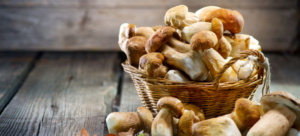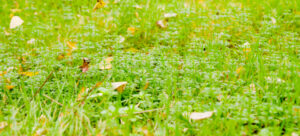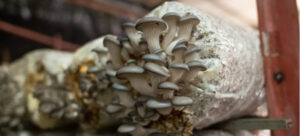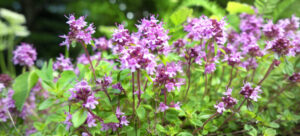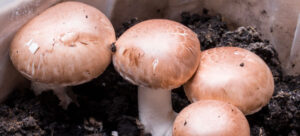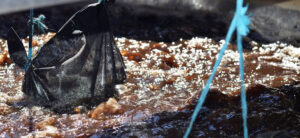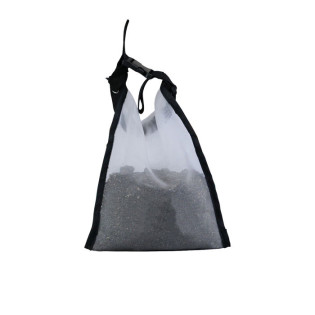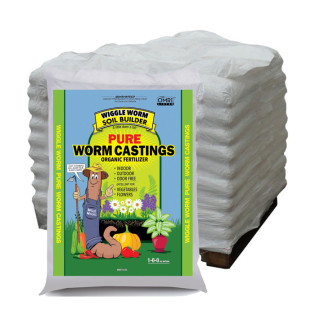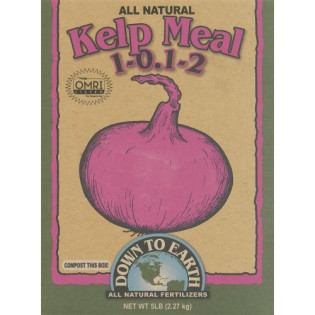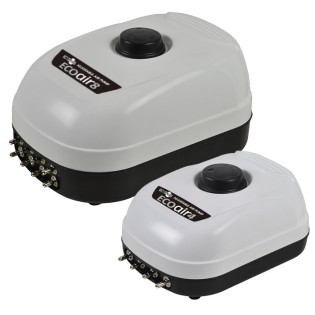
If you're interested in organic growing, you need to learn how to make compost tea for the garden.
This is a unique way to make the most of organic scraps - whether it be food, yard waste, etc.
If you aren't already composting, you should be! You can use this compost to create a tea, and feed your plants a potent, all-natural fertilizer.
They'll reward you with impressive growth. And the best part? It's not just completely organic, you'll also save money in the long run on fertilizer while improving soil conditions for years to come!
We're going to teach you how to make compost tea for the garden in this article. We'll also share a gardening hack that allows you to reap all the benefits of compost tea without having to wait, or do any of the work!
Before that, though, let's start by explaining what compost tea actually is, and why you should give this organic fertilizer a try.
What Is Compost Tea?
Compost tea, at its simplest, is compost that has been steeped in water, usually between 24-48 hours, creating a liquid compost or tea that is rich in nutrients, microorganisms, and humates.
Because of its liquid form, it can be applied by saturating the soil, or as a foliar spray.
Regardless of how you apply it, compost tea benefits include improved plant growth, development, and resiliency to harmful diseases. We'll share all the notable benefits of this plant superfood in a minute.
In fact, it’s recommended that you apply your compost tea in both manners. This way, it will fight diseases and dangerous pathogens found both above and below ground.
Does Compost Tea Really Work As A Fertilizer?

As with any new product or method you come across these days, it's fair to question the efficacy before trying it yourself. This is why many growers new to this idea ask, does compost tea really work as a fertilizer?
Yes, just as compost is a great option for amending your garden soil and providing your plants with slow-release organic nutrients, compost tea is a great option for feeding nutrients as a root drench!
However, you need to use this product correctly. While spraying it on your foliage may be the only option if your plants are root bound and cannot uptake nutrients in the soil. But, the results will not be the same.
We'll cover more on how to use compost tea later on. For now, let's discuss the benefits you'll unlock for your plants by feeding them compost tea.
The Benefits of Compost Tea for your Garden
Growers using organic nutrients probably already know the benefit of compost tea, as this is simply an organic food source for your plants.
But, if you're new to this style of growing, you may not be aware of just how beneficial it is. In general, here are some of the benefits of organic growing:
- Improve conditions in the soil, colonizing it with beneficial microbes and bacteria. In turn, they break down nutrients into more useable forms for your plants, improving nutrient uptake
- Feeding organic nutrients such as compost tea will allow you to maintain the natural flavor and aroma of your plants and their flower. No synthetic tasting salts stuck inside your plants!
- Increased resistance to pests and diseases, along with other common stressors your plant may face.
Compost tea should not be confused with the nitrogen rich manure tea. Rather, compost tea composed completely of organic matter contains the micronutrients and trace elements lacking in a manure tea.
This makes it a vital component for growers formulating their own organic based nutrient solution.
There is no danger of nitrogen burn when using compost tea as a foliar feed. This is because it primarily contains micronutrients that are more readily absorbed by through the leaves.
You can turn your kitchen scraps and yard debris into compost with the purchase of an easy-to-use composter. Then, you can turn this compost into a tea, and easily apply it as a root drench, feeding your plants.
Let's take a quick look at microorganisms and humates before we move onto how to make compost tea.
Different Components Of Compost Tea
Part of what makes using compost tea in the garden so powerful is all the different compounds you'll find within it.
Let's take a look at the most important aspects of any compost tea blend.
Compost Tea Microbes & Micro-organisms

They might be naked to the human eye, but microbes are crucial to growing large, healthy plants in the soil. Microbes love interacting with your plants. Here is a quick peek into the relationship they have.
- Microbes decompose organic matter and use the carbon and nutrients found in them for their own growth.
- The microbes will then release excess nutrients, which will be readily available to your plants.
- Certain microbes consume dangerous pathogens found in soil. For example, certain protozoa consume pathogenic fungi which are dangerous to plant health. Other microbes can degrade agricultural pesticides in soil along with other toxic substances.
- Microbes improve soil structure and improve water retention.
- Microbes are self-sufficient because they digest each other’s dead bodies. This means you will use less organic material for nutrients.
Most compost tea is brewed with aeration supplies e.g. an air pump that supplies oxygen during the brewing process.
Supplying oxygen uniformly throughout the tea will support the development of vital microbes that need oxygen to live.
Compost Tea Humates
Humates are complex substances that we know are needed for plant growth and development.
They contain a number of organic acids: fulvic acids and humic acids, and macromolecules like amino acids, amino sugars, and peptides.
Understanding humates in their entirety is difficult even for those that are well-versed in soil growing.
So for now, just understand that they are crucial for plant growth and development.
Now, you came here to learn how to make compost tea for the garden. Since you're likely sold on the benefits, we'll go ahead and teach you how to get started.
How To Make Compost Tea - Step By Step Guide
There are a few different ways to make compost tea - but it all starts with your compost, regardless of the approach you use.
Start With Mixing Your Compost

Your compost tea is only going to be as effective as your compost, so you need to do some research into which nutrients your specific plants need most, and seek out organic matter that provides said nutrients.
Just about any organic matter can be added to your compost. In general, though, here are two essential elements you need to add to your compost mix:
- Shredded yard waste (lawn clippings, leaves, etc.)
- Kitchen scraps (bones, vegetable scraps, fruit peels, etc.)
- Certain types of manure (Aged manure is great, fresh manure is way too hot for plants)
In terms of quantity, you should aim for an equal weight of yard waste and kitchen scraps.
You need a place in your yard to stack your pile, and you'll want to layer elements on top of each other - start with kitchen scraps, and completely cover them in (ideally) equal weight plant debris.
Repeat this layering process with as much compost as you wish to produce. You'll want to periodically water the compost, or if weather allows, simply let it get rained on every so often.
After it gets wet, you need to mix the compost pile thoroughly. Try and bring the stuff from the bottom up to the top. This will allow the microbes and bacteria (all beneficial, of course) to work through the newer stuff you've added up top.
If made correctly, your compost will begin smelling nice and earthy - it shouldn't smell rotten by any means.
What Can You Add To Compost Tea?

The compost you've produced will make the base of your compost tea, but there are certain things you'll want to add to this when blending your tea to provide a more balanced nutrient ratio.
Of course, you'll need to add water to actually make the tea. We'll cover the specific ratio in a minute. But, here are some essential amendments you should add to your compost tea mix:
- Worm castings (read our full guide on the power of using worm castings here)
- Kelp meal
- Molasses
- Fish meal
Basically, any amendment that provides nutrition can be added to your compost tea.
We'll discuss a specific recipe below, but you'll want to tailor-make your batch to the type of plants your growing. Let's discuss how to brew compost tea now.
Consider Your Plants Nutritional Needs When Brewing Compost Tea
Remember, the goal of compost tea is to provide your plants with nutrients, fungal colonies, and beneficial bacteria to create a thriving community. While brewing is a simple process, gathering everything you need won't always be.
This will require some research on your part, as not all plants have the same needs nutrition-wise.
When examining most compost tea recipes, you’ll see fish meal, feather meal, bone meal, crustacean meal, alfalfa meal, cottonseed meal, kelp meal, dolomite, gypsum, and we’re going to stop there. There is no end to the quantity of ingredients you can add to your mixture.
| Type of Plant | Type of Tea |
| Coniferous Trees | Highly Fungal |
| Deciduous Trees | Moderate Fungi |
| Berries | Balanced Ratio of Fungi and Bacteria |
| Vegetables & Grasses | Moderate Bacteria |
| Brassicas | Highly Bacterial |
Tea kit solutions will come with different ratios of fungi to bacteria and the food to feed each, and the type of plant you grow will determine what ratio you need.
If you cannot find your specific plant above, simply find the type that is the closest to what you are growing. If you’re growing in sandy soil, you will want a heavier ratio of fungi because it will help improve and build soil structure.
This should give you an idea why many go for kits, and that’s why we offer a bunch of differently priced kits, with various mixtures of ingredients so you can start brewing on a budget.
Actually Brewing Your Compost Tea
Whether you want to create a small batch or create a leviathan size brewing operation, at Hydrobuilder we make brewing your own tea simple.
All of our brewers are stand-alone with easy to use pumps and drains that keep your work area clean and efficient.
Just throw in your ingredients and walk away.
Let’s take a look at what the brewing process looks like with a more hands-on approach:
- Step 1. Gather your brewing supplies and ingredients - You will need your ingredients (check out our kits that do the work for you), a bucket (preferably 10 gallons), and an air pump.
- Step 2. Fill your bucket with water - If using tap water, let it sit out for a day. This allows the chlorine to evaporate away, as it can kill good microorganisms.
- Step 3. Add a catalyst - Your catalyst is simply a nutrient solution for the microbes, and gets them eating and multiplying.
- Step 4. Steep your compost - You will put your compost in a brewing bag, ball, etc. just like if you were actually making tea - screen/bag size should be close to 400 microns.
- Step 5. Aerating the mixture - You want air to pump up from the bottom and up throughout your brewing mixture. This will get beneficial fungi and bacteria moving and doing their job (air pump and stone will make this easy).
- Step 6. Walk away - The brewing process should last for at least 24 hours. The longer you brew, the more potent your tea. You will want to see foam, as this indicates that the tea is brewing properly.
This is how to make compost tea - it's that simple, just 6 steps. Of course, there is quite a bit of work that goes into those six steps, but the benefits you'll unlock are well worth the sweat-equity!
Simple Garden Compost Tea Recipe (example)
Keep in mind all plants are different - this recipe will work great for a broad range of plants, but we highly encourage you to do your due diligence.
This particular recipe is pretty simple, and you can choose a veg or bloom mix to accommodate whatever stage of growth your plants are in. For this recipe, you'll need:
- Unco Wiggle Worm Pure Worm Castings
- BuildASoil Food Grade Organic Oregon Tilth Molasses
- Down To Earth Bat Guano 7-3-1
- HGV Nutrients*
- Down To Earth Fish Hydrolysate (fish powder)
- A compost tea brewer
*NOTE: Choose Grow for the vegetative phase of growth or Bloom for the flowering phase of plant growth.
Add 2.5 Tbsp of Nutrient Mix in a separate tea bag and brew the compost tea for 12 to 24 hours.
Top dress the sludge after the brew process. As always cover with fresh media to keep it moist and out of the light.
How To Actually Apply Compost Tea In The Garden

Brewing your compost tea is the hard part, but you can still make mistakes when it comes to actually applying the product to your plants.
This is a highly controversial topic actually. Some growers claim spraying compost tea on the foliage of your plants can be just as beneficial as applying a root drench.
Others claim that since your plants can only take up so many nutrients through the foliage, this ends up wasting the product and getting dismal results.
Plus, the main benefit of applying compost tea in the garden is in the microbial activity it adds to your soil. So if you are not applying to the root zone in particular, you're missing out on the power of better soil!
For most growers, compost tea will not completely replace the main nutrients they feed their plants. Basic tea will not harm your plants with nutrient burn, so you can apply your tea freely.
Compost Tea Concentration Rates & Storage Protocol
Gardeners commonly dilute their tea with water between 1:1 to 1:20, but you can certainly feed at a higher concentration.
Without aeration, oxygen levels can lower by 300% after just 6 hours. You will need to aerate, agitate, and add more food to the tea to increase shelf life.
This is why we recommend keeping your tea stored in your brewer or in a bucket with the aerator running 24/7.
Consider Using Pre-Brewed Compost Tea Nutrients
The entire focus of this long-winded article has been teaching you how to make compost tea. Now that you know the process and best practices, recipes, and how to applying it, you can get started grabbing your ingredients and a brewing kit,
But maybe you don't have the time for all this - maybe you need to feed your plants now. Or, maybe you don't have the space for compost in your yard.
Worry not - you can still unlock the benefits of compost tea by using a pre-brewed compost tea blend.
Here at Hydrobuilder, we source the best brands and products on the market. These pre-blended batches of tea provide your plants with a boost of organic nutrients and microbes. Here are some of your best options:
Final Thoughts On How To Make Compost Tea For The Garden
Now that you know how to make compost tea for your garden, you can get started composting your raw materials or grab a complete compost tea kit and a brewer here at Hydrobuilder.com.
When you shop with us, you gain access to the best selection of products from the top brands the horticulture industry has to offer.
Better yet, you'll experience our world class service, which has hobbyist and commercial growers alike returning for all their indoor growing and gardening needs for years to come.
